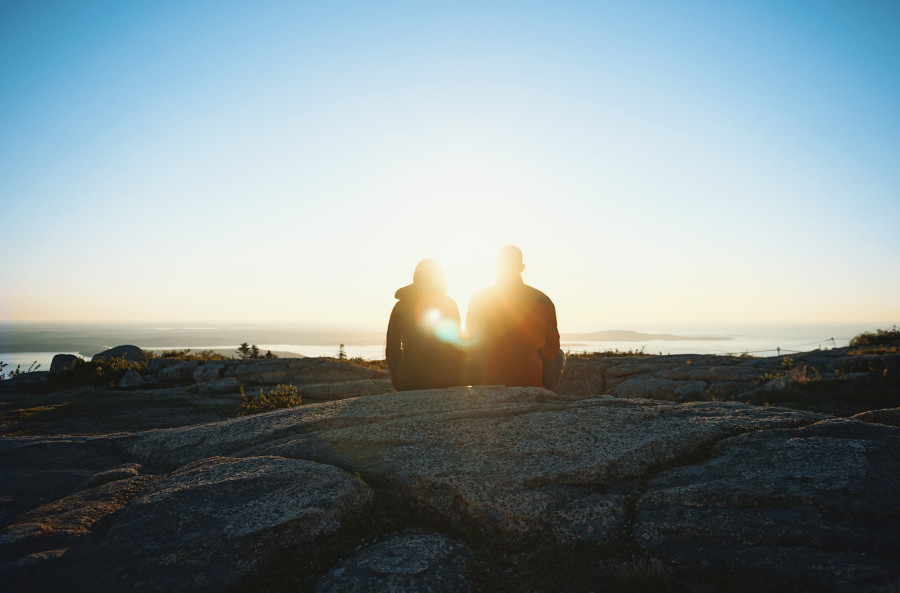Fiction Park
My refugee girlfriend
She was a refugee but I never considered her as a stranger. And knowing that I wouldn’t see her again broke me.
Dipendra Gautam
Every day, I would stop for a bhakka—typical steamed snack prepared from fresh rice flour by indigenous Rajbanshi women of eastern Nepal—and go to the bridge, stopping for a while in the lawn and facing the golden dusk. That day, I had to wait for a long time to get my bhakka. The vendor, who I called didi, turned to me and urged me to talk with the other customer while waiting for my turn.
I obliged and nervously asked her, “Are you also waiting for bhakka? It looks like we will wait for at least half an hour more.”
She nodded her head and gave me a thin-lipped smile. Keeping control on my accelerated heartbeat I asked: “I am seeing you for the first time here, are you new to this neighbourhood?”
“It hasn’t been long since I moved here so you could say that I am quite new here,” she said. I asked a slew of the usual questions: which school did she go to, who was in her family, did she have siblings. I then ran out of questions. Finally, I asked her name and she replied: “Shleshma”.
While we were talking, the bhakka was ready which she took and bid farewell to didi and me. As she walked away, didi told me that she was a Bhutanese refugee’s daughter, who recently got citizenship and settled in the neighbourhood.
As I ate my bhakka, I imagined how she must have left the deep lush forested southern fringes of Bhutan before crossing an inhuman lorry trip of several days to reach a country she would never accept as her own. Next day, I checked my wristwatch, exactly 17:20. I peddled hurriedly and reached the same junction. I sat desperately waiting for her, with some questions prepared.
After waiting for a while, I saw her walking towards the junction. She asked didi for one bhakka with some chatpate. We exchanged smiles, a glimpse of curiosity. I initiated the conversation. We started speaking, and the bhakkas lay forgotten. Since then, our meetings became frequent and so did our chit-chats holding hands.
***
On a cold winter enveloped in the quilt, I woke up to a text, “We are travelling to Norway next week. I am not sure if we can see each other when I am in Kathmandu. I will probably not return to your country again.”
She could never have her beautiful home in southern Bhutan, as she was amongst the ones who breached Shangri-la rules. She had demanded democracy, spoken the Nepali language and celebrated Nepali festivals—all considered un-sacred to the Shangri-la. Buddhism was practised in Shangri-la but the preachers were violent, cruel and discriminant. Noble truths were somersaulted and “right action” was converted to brutality.
Shleshma underwent all of these salvations and lost her motherland, but never accepted Nepal as her home even though she shared culture, language and heritage of Nepal.
She was a refugee but I never considered her a stranger. And knowing that I wouldn’t see Shleshma again broke me.
***
After a decade, as I bought a ticket to Oslo, I texted her, “Can we meet?” I got a response after several weeks when I was in Holland, sipping tea at a cafe.
“I can’t find time for a meeting. Back in Nepal, because of social assimilation problems and for survival I spent time with you. But here, I have a home now and a decent income. I can’t join you for a bhakka. I don’t have an affinity with bhakka anymore; I hardly remember that chatpate. Potatoes, evening wines and weekends are what make my life here. We no longer speak Nepali nor celebrate Dashain and Deepawali. I no longer have any feelings for you or your country. And if we ever happen to cross our paths, I hope we could be two strangers again.”
I took a long breath, recalled her face. The waiter asked me if I would like to order something more, I smiled and looked at my wristwatch and regretted. If only I had gone for my bhakka that fateful day 10 minutes later.



 13.16°C Kathmandu
13.16°C Kathmandu










